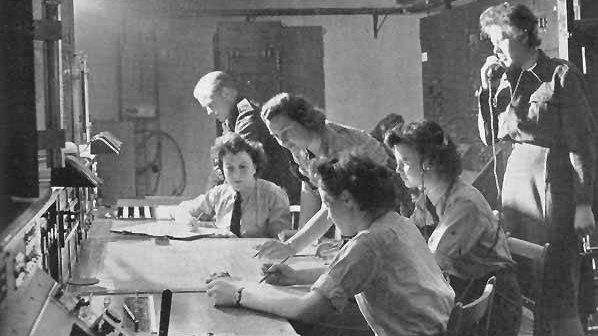World's first radar station offered as film location
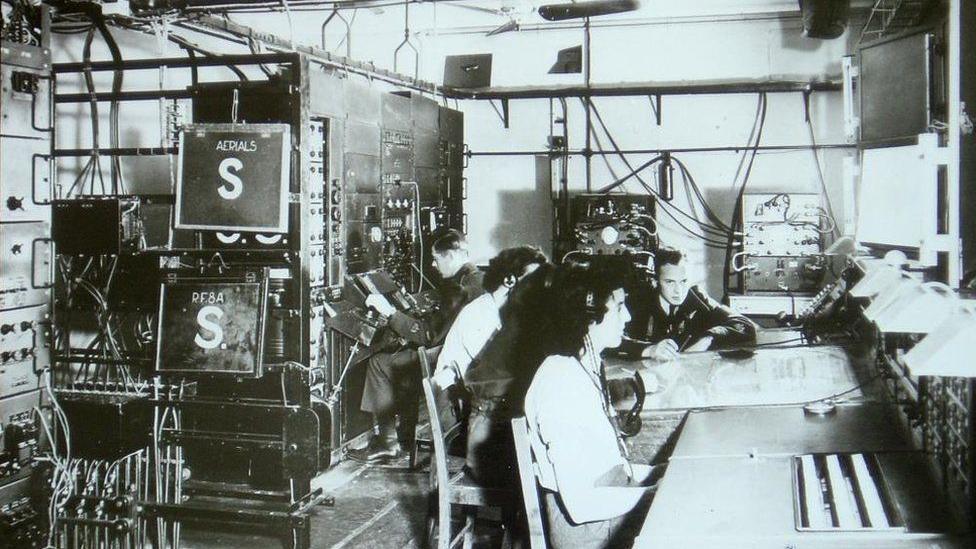
The Bawdsey Radar Transmitter Block near Felixstowe was instrumental in the success of the Battle of Britain
- Published
The world's first radar station could appear on the big screen in a bid to secure its long term future.
Bawdsey Radar Transmitter Block in Bawdsey, near Felixstowe, Suffolk, began operations in September 1937 and was crucial in helping win the Battle of Britain.
Now a museum, the Bawdsey Radar Trust runs the Grade II listed site and has teamed up with Screen Suffolk to offer it as a filming location.
Graham Murchie, chair of the trust, said the decision would help ensure the site's preservation.
"As a charity we need to look at every option in terms of funding," he explained.
"Along with virtually every other museum we still haven't quite recovered to pre-Covid numbers in terms of visitors and the amount of spend.
"We've certainly seen the cost of living impact as well as the Covid impact.
"Things are getting better all the time."
Various film works have taken place at the station before but the trust hopes more producers will come forward after teaming up with Screen Suffolk.
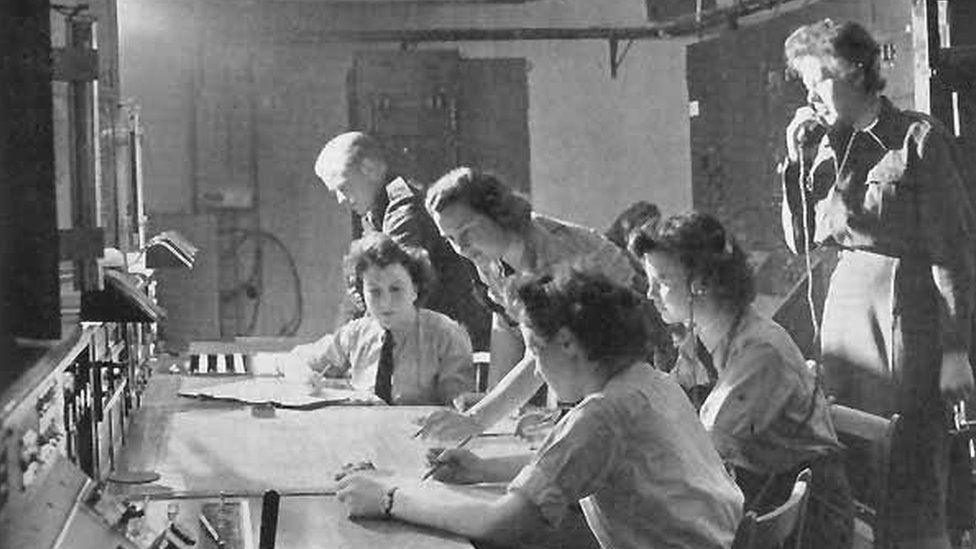
About 4,000 personnel were estimated to have been stationed at Bawdsey during its operational lifetime
Screen Suffolk, set up in 2016, is the county's official film office, acting as a database as well as being able to source crews and grant permits.
Jim Horsfield, Screen Suffolk's operations and business development manager, explained Bawdsey Radar was a great site due to its remote location and history.
"Because it's the world's first operating radar station it's just got that unique feel to it," he said.
"We're always looking to bring on new locations... and the bunker, with the way that it is shaped and formed, it's just an interesting structure that hopefully will be used by lots of filmmakers in the future."
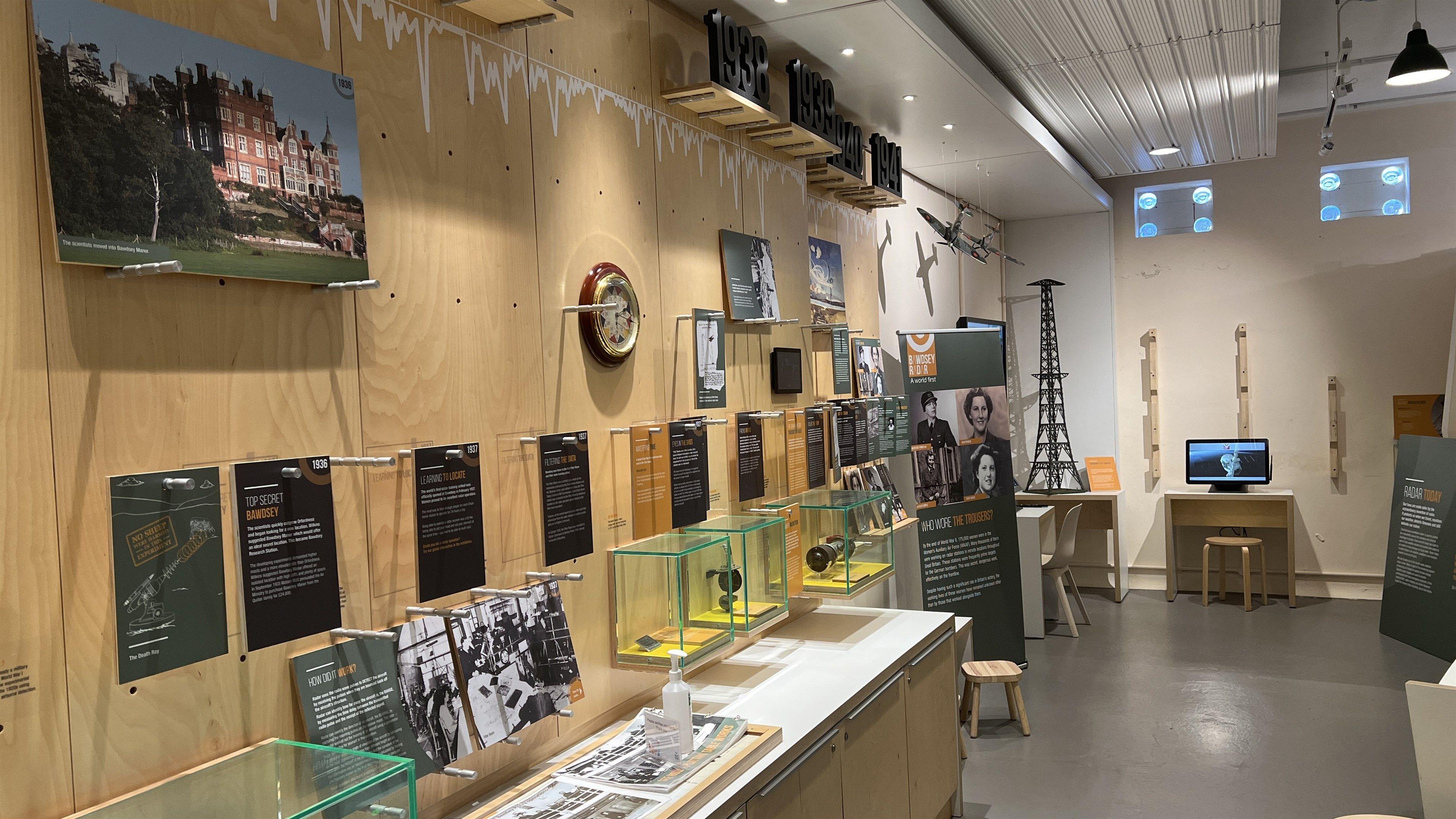
Screen Suffolk said the radar block was a great place due to its location and history
Mr Murchie explained how radar emerged following World War One when, for the first time, civilians were being killed by aircraft dropping bombs.
The UK government set up a committee to investigate the country's air defences should another war break out.
Physicist Robert Watson Watt proved it was possible to detect the presence of aircraft using radio waves.
Initially five operational radar stations were built, including Bawdsey, which became the first Chain Home radar station linked to RAF Fighter Command.
"By the time [World War Two] broke out in 1939, we were ready with a radar early warning system," continued Mr Murchie.
"It meant come the time of the Battle of Britain we were able to see what was incoming in the way of attacks - we could direct our Hurricanes and Spitfires to exactly the right place.
"As a result of that we won the Battle of Britain - and the rest is history."
Follow Suffolk news on Facebook, external, Instagram, external and X, external. Got a story? Email eastofenglandnews@bbc.co.uk, external or WhatsApp us on 0800 169 1830
Related topics
More stories on Bawdsey Radar
- Published25 February 2022
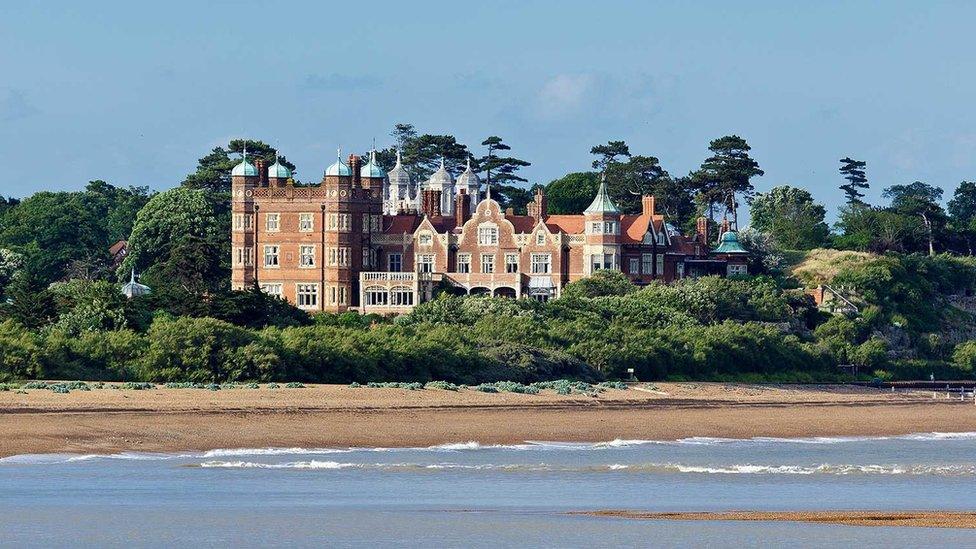
- Published12 January 2016
